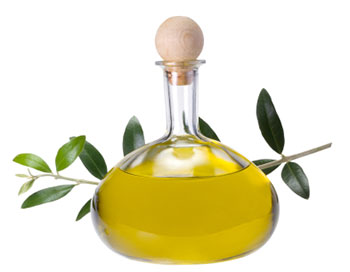More Health and Nutrition Bites
Related
Prevent Diabetes without Losing Weight
If you've been following Dr. Gourmet for even a little while, you know that we're all about translating Mediterranean Diet principles for the American kitchen. Hundreds upon hundreds of well-designed studies document the positive effects of a Mediterranean-style diet upon blood pressure, cholesterol scores, and conditions both major and (comparatively) minor as heart disease, cancer, Alzheimer's Disease, pneumonia, and osteoporosis.
What oil should I use for fondue?
Should I use grapeseed oil, or is there a better choice out there? I fondue meats and veggies (in hot oil), not cheeses and chocolate.
Excerpts From a Dr. Gourmet Interview on Diet and Aging
Next week everyone will be working on their New Year’s resolutions. I have read estimates that as high as 75% of people will resolve to lose weight or eat better. Certainly changing the way you eat is a good way to lose weight but there’s other great reasons.
Health & Nutrition Bites
Get the latest health and diet news - along with what you can do about it - sent to your Inbox once a week. Get Dr. Gourmet's Health and Nutrition Bites sent to you via email. Sign up now!
More interesting Mediterranean Diet research: nuts and EVOO

Eating a Mediterranean diet has clearly been shown to help reduce the risk of heart disease. Numerous studies have been completed, but most have compared the diet to a typical Western diet, as has a study reported in this week's Annals of Internal Medicine (2006:145(1);1-11). A group of researchers in Spain compared a Mediterranean style diet to a low-fat American Heart Association (AHA) type diet, showing a significant reduction in blood pressure, cholesterol, fasting blood sugar and other markers of inflammation associated with heart disease.
Dr. Ramon Estruch and his colleagues divided 772 people into three groups. One group received education on a low-fat AHA diet and the other two groups were given information on the Mediterranean type diet. Each of the Mediterranean diet groups were supplied with either extra virgin olive oil (EVOO) or nuts - as much as they wished. The two Mediterranean diet groups did show some variation between them, but in both cases risk factors associated with heart disease were improved when compared with the low-fat diet.
While this information adds pieces to the puzzle of what an optimum diet can be, there are a number of flaws in this study. First is that the researchers did not give the participants using the low-fat diet the same level of education about their diet as the other two groups. It is hard to say if this is why that group did not decrease their fat intake to the level that the researchers had hoped. The addition of nuts and olive oil to the other two groups diet serves to confuse this data further. It is clear that olive oil and nuts are good for us, but an initial study of a low-fat diet head to head with a Mediterranean diet would have been more useful.
Interestingly, there was no weight gain with the users of nuts and EVOO or the low-fat diet. The authors praise this, claiming that this shows that eating as much nuts and EVOO as one wishes doesn't lead to weight gain. While this may be true, it is clear that the low-fat comparison diet was not pursued with the same amount of education. It is very possible that with the proper degree of information in this control group they may have done much better. The design of the study seems to be biased in favor of the groups eating nuts and EVOO.
It should be noted that this study was partly funded by growers of nuts and olives as well as the consortiums supporting these industries in both Spain and California.
What this means for you
We know that a Mediterranean diet is good for you and it tastes great. Eating olive oil, and other oils high in monounsaturated fats, like grapeseed oil, are clearly better for you. Nuts are good for you and they taste good. All of these changes in your diet would be positive ones, but this study does not really prove that it is better than a lower-fat diet. Important studies need to be more balanced than this one.
First posted: May 18, 2007
